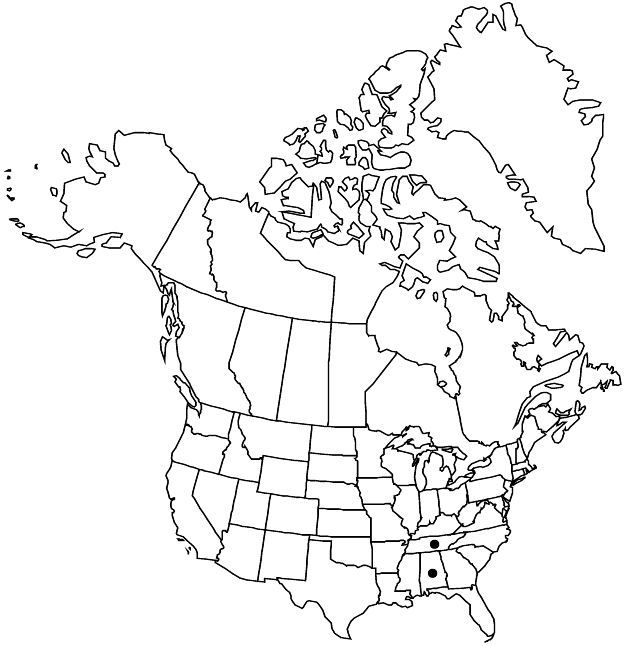Crataegus austromontana
Bot. Gaz. 28: 412. 1899.
Shrubs, 40–50 dm. Stems: twigs: new growth densely pubescent, 1–2-years old brown; thorns on twigs not recorded. Leaves: blade broadly ovate to suborbiculate, 4–7 cm, base cuneate, lobes 3 (or 4) per side, sinuses shallow, lobe apex subacute, margins sharply glandular-serrate throughout, veins 5 per side, apex subacute, abaxial surface sparsely pubescent except on veins, adaxial appressed-hairy young, especially on veins, surfaces usually glabrescent. Inflorescences 3-flowered, on lateral leafy short-shoots of season; bracteoles caducous, membranous. Flowers 25 mm diam.; sepals narrowly triangular, 7 mm; petals broadly elliptic; stamens 10; styles 3–5. Pomes red, suborbicular.
Phenology: Flowering early May; fruiting Sep–Nov.
Habitat: Wooded hills, brush
Elevation: 70–200 m
Distribution

Ala., Tenn.
Discussion
Of conservation concern.
Crataegus austromontana is a possibly extinct species; it was last collected in 1916. Beadle reported that it occurred throughout the Sand Mountain region of Alabama and had also been collected in the Cumberland Mountains and hill country of eastern and middle Tennessee. The species is similar to C. triflora but has wider, usually larger and more deeply incised leaves, and only ten stamens.
Selected References
None.
Lower Taxa
"thin" is not a number."winged" is not a number."/3lengthofpetals" is not declared as a valid unit of measurement for this property."wide" is not a number."adnate" is not a number."dm" is not declared as a valid unit of measurement for this property.